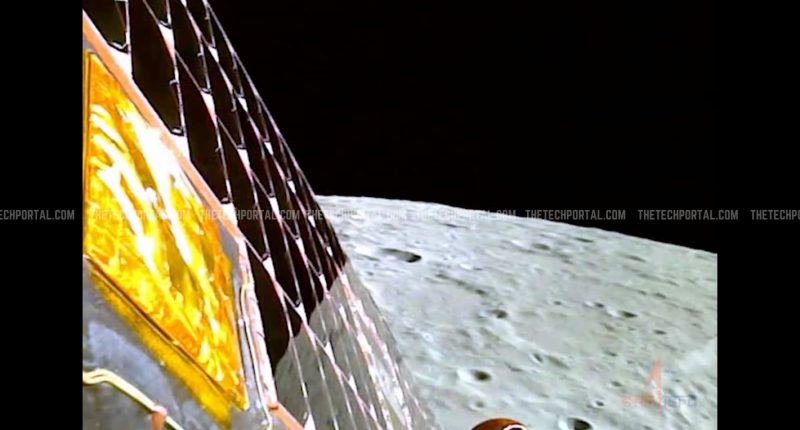In what will be etched in humankind’s brief but enterprising space-faring history, India’s Chandrayaan-3 has made a successful landing on the moon’s far-away south pole. Not only does this become the first controlled soft landing on the far side of the moon, it also means that humans will now be able to explore — for the first time — surface of the lunar south pole.
The ‘Vikram’ lander, which is reaching the moon for the second time after its earlier predecessor aboard the ‘Chandrayaan-2’ mission crashed, will now rollout the ‘Pragyaan’ rover on the surface of the moon for further exploration of the lunar surface. In terms of pure science, the mission holds significance in exploring frozen water ice on the lunar south pole, and seeing whether the same could be used for future crewed moon missions and human bases. Interestingly, it was Chandrayaan-1, back in 2008, which first confirmed the presence of water molecules on moon, through a NASA instrument onboard the orbiter.
Chandrayaan-3 Mission:
'India??,
I reached my destination
and you too!'
: Chandrayaan-3Chandrayaan-3 has successfully
soft-landed on the moon ?!.Congratulations, India??!#Chandrayaan_3#Ch3
— ISRO (@isro) August 23, 2023
ISRO executed the landing with text-book precision, with the lander relying on its on-board computers to perform an automated landing via ALS (Automatic Landing System). The lander is now expected to release the rover any time, post which the rover would begin lunar surface exploration at the speed of 1cm/sec, covering roughly 500 metres of distance during its expected lifecycle of 1 lunar day (14 earth days). ISRO has said, that there is possibility of the lander/rover combo to re-activate once lunar night is over, though it is not an official mandate of the mission.
This is a developing story, please refresh for updates.
The Tech Portal is published by Blue Box Media Private Limited. Our investors have no influence over our reporting. Read our full Ownership and Funding Disclosure →






